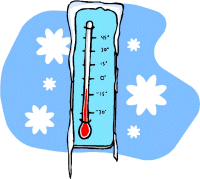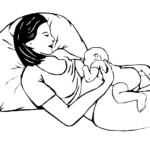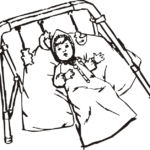Here’s a question from Sandy in Ingersoll, Ontario:
Q: If I’m unable to breastfeed immediately, how long can I keep my expressed breastmilk in the refrigerator? And if I take it in a cooler, how many hours is it safe to use?
A: Good question, Sandy! Here’s a handy guide for the safety of expressed breastmilk:
- Room temperature (less than 25 degrees C) for 6-8 hours
- Refrigerator (<4 degrees C) for 5 days
- Freezer of a 2-door refrigerator (-18 degrees C) for 3-6 months
- Freezer of a deep freezer – chest or upright (-20 degrees C) for 6-12 months
- When travelling, carry expressed breastmilk in cooler bag with ice packs and use within 24 hours
Nancy Lahn RN
Developer of the Cozy Cuddles Nursing Pillow
Originally posted 2015-04-07 16:35:44.

 gree. What’s happening is that the muscular valve between the esophagus and the stomach is maturing and doesn’t always function properly, allowing the stomach contents to come back up. Burping the baby when he finishes on each breast can help, a
gree. What’s happening is that the muscular valve between the esophagus and the stomach is maturing and doesn’t always function properly, allowing the stomach contents to come back up. Burping the baby when he finishes on each breast can help, a s well as feeding in a more upright position. If you’re using the cradle hold, position the part of your Cozy Cuddles Nursing Pillow that is supporting his head on top of the arm of your chair and tuck the other end under the arm under the chair arm, so his head is elevated. You can also nurse in the laid back position, supporting your head and shoulders with your Cozy Cuddles pillow and positioning your baby on your chest elevates his head so that gravity will help him. Also, don’t lay the baby down for 30 minutes after feeding – propping using your Cozy Cuddles Nursing Pillow can be helpful.
s well as feeding in a more upright position. If you’re using the cradle hold, position the part of your Cozy Cuddles Nursing Pillow that is supporting his head on top of the arm of your chair and tuck the other end under the arm under the chair arm, so his head is elevated. You can also nurse in the laid back position, supporting your head and shoulders with your Cozy Cuddles pillow and positioning your baby on your chest elevates his head so that gravity will help him. Also, don’t lay the baby down for 30 minutes after feeding – propping using your Cozy Cuddles Nursing Pillow can be helpful.